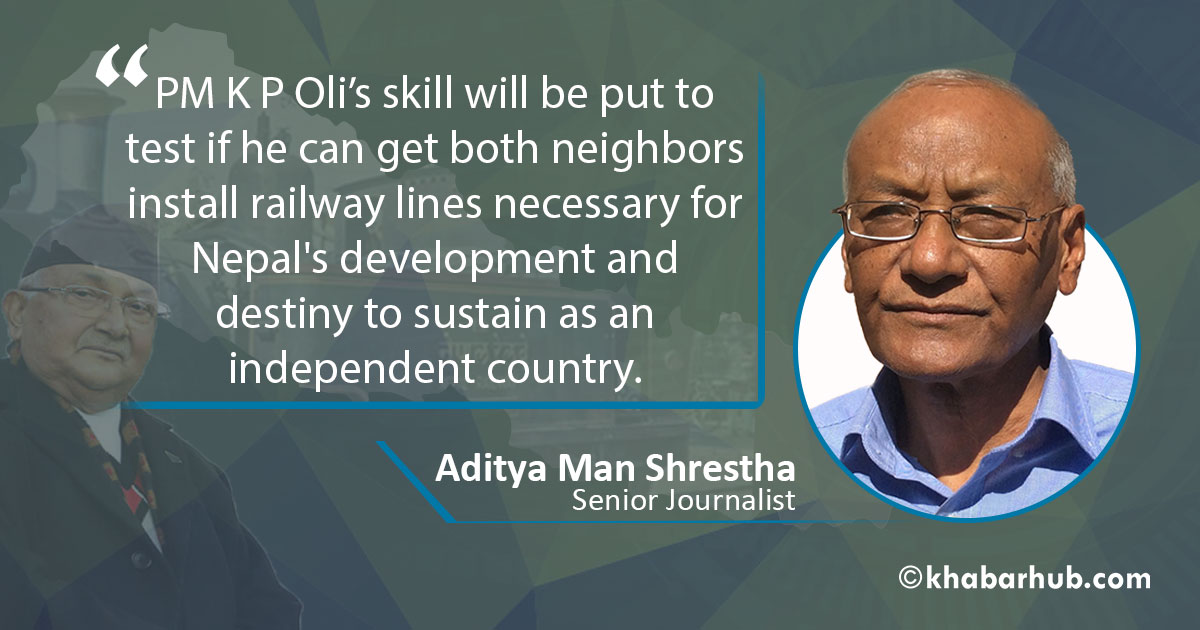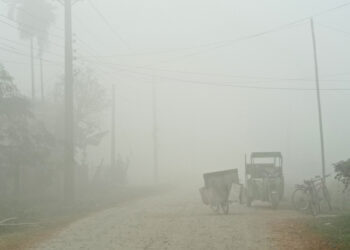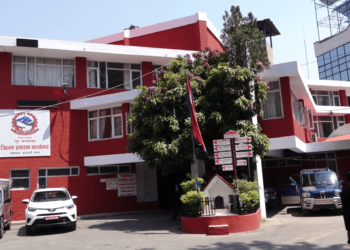Walking the tight rope is an inevitable feature of Nepalese diplomacy. It has proven an effective means of survival for centuries for Nepalese rulers. In the case of present administration too, it applies to the whole hog.
The election of KP Oli as the new Prime Minister of Nepal was a matter of normal course of electoral process under the new constitutional dispensation of Nepal. But the impact was nothing less than abnormal.
Firstly, the federal, secular and republican constitution was never expected to lead to political stability and to produce a government with an overwhelming majority. But it did.
India stands in need to come out of the family domination that it suffered for a long time after its independence. There is none in his party, BJP who has the stature to challenge him in the near future.
Secondly, the UML chief, Oli and the Maoist supremo, Pushpa Kamal Dahal alias Prachanda, despite uniting their parties, were hardly expected, despite their public verbiage, to walk together, which they did.
Thirdly, the free-world countries did not frown at our communists, which they usually do elsewhere in the world. Is it because they don’t consider them as real communists or harmless at their worst? It is just beside the point. The fact that the free world has accepted our communist government as business-as-usual is in itself extraordinary.
Fourthly, the most astounding feature of Oli’s rise to power with a thumping majority in parliament coincides with the comparable elevation of strong personalities in the neighborhood.
President Xi Jinping has been endorsed for his second term, breaking down all the constitutional barriers to go down as the life-long strong man of a strong country. Similarly, Narendra Modi, on a hectic election campaign, looks firm to come victorious in the hustling despite tough time his opponents have created. India stands in need to come out of the family domination that it suffered for a long time after its independence. There is none in his party, BJP who has the stature to challenge him in the near future.
If we stand just like quiet observers in this big Asian drama, we tend to lose in either case of their fight or development of friendship. The case of Lipu pass agreed upon between them is a case in point of a negative result of standing on the sidelines.
However, the problem with strong men in power is looked upon with a mixed feeling. Optimists look forward to the resolution of outstanding and intricate problems whereas pessimists fear of conflict, war, and destruction under the crush of their ego and determination.
The prospect is wide open. China and India are in a fast course of development. They do realize the importance of peace for their mission in hand. They have been wise enough to maintain a normal relationship despite their abnormal legacy of border dispute resulting in the consequential war in 1962. They need to get rid of the past bitterness to move ahead towards making the 21st. century Asian in the obvious sense of economic affluence and crucial role players in world affairs.
In fact, Prime Minister Oli can initiate diplomacy to help them fulfill their undertaking with a reciprocal help in return. If we stand just like quiet observers in this big Asian drama, we tend to lose in either case of their fight or development of friendship. The case of Lipu pass agreed upon between them is a case in point of a negative result of standing on the sidelines.
Meanwhile, a third factor, the United States has appeared with a strong will to make its presence felt by way of Indo-Pacific diplomacy. Washington is clear what they have initiated this international reach-out. It is Nepal, which has been caught napping in the new development. Nepal looks far from able to deal with the tight-rope policy as in the past.
Prime Minister Oli’s stakes lie in getting the railway linkages with China without offending the Indian susceptibility.
The danger therein will be surfacing soon as we move ahead. As Keshab Raj Seadie, a Nepali lawyer practicing in New York surmised a few years ago, the Americans are good at driving a wedge between China and India as they did in the Second World War in Europe, when they would start climbing on the road of prosperity. Not surprisingly, India went pretty close to the US to keep apparently China far, departing from their long-standing ties with the Russians, just to feel secured psychologically in case of Chinese assaults on India. It is just to make sure that they do not feel humiliated like some 60 years ago.
Seadie has too foreseen a possibility that as China and India grow rich they will find secured to keep their money in the US rather than in their own countries. Americans have a great knack of dividing the world for their own benefit.
King Mahendra saw China and India avowing eternal brotherhood as well as blaming each other as aggressors. It was a delicate time for him to save his country from getting dragged into the historic conflagration. More than that he had to save himself and his newly –acquired rule from getting over-powered by the hostile and violent movement from his adversaries from the Indian soil. Even at the worst of time, he did not lose his cool and desisted from siding with one against the other in the bigger 1962 war theater in the east and west of Nepal.
In view of the Sino-Indian confrontation in Doklam in the recent past, Nepal was about to face a situation that King Mahendra did in 1962. Prime Minister Oli’s stakes lie in getting the railway linkages with China without offending the Indian susceptibility. His skill will be put to test if he can get both neighbors install railway lines necessary for Nepal’s development and destiny to sustain as an independent country.
Views expressed in this article are the author’s own and do not necessarily reflect the stance of Khabarhub.









Comment